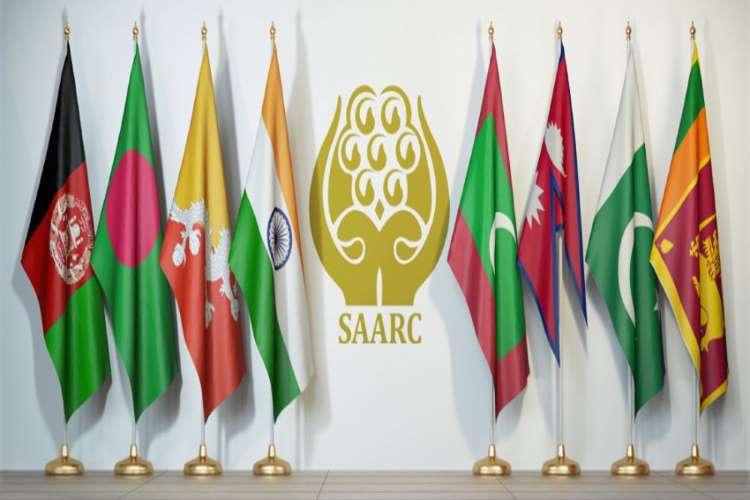
The ongoing 2024 general elections offer an opportune time to evaluate the Narendra Modi government’s foreign policy efforts. Throughout the past five years, the government adopted a distinctly assertive stance in international affairs, a noticeable shift from its previous term. Yet, amid its achievements, critical challenges remain, particularly in managing regional threats and dynamics. It is time for a comprehensive evaluation of the government’s management of ties with the neighboring countries including China.
The Modi government claims significant achievements on the foreign policy front globally. But questions remain about its neighborhood policy, particularly regarding its relations with China. The handling of the Sri Lankan debt crisis, the approach towards Taliban 2.0 in Afghanistan, and the implementation of the controversial Citizenship Amendment Act (CAA) warrant serious introspection among the country’s several initiatives. Given this backdrop, it is imperative to conduct a thorough review of the country’s foreign policy.
READ I Iran-Israel conflict: India walks diplomatic tightrope to escape economic fallout
Modi government’s diplomatic triumphs
The G-20 summit held in New Delhi in September last year showcased India’s evolving role as a responsible global player, particularly of the Global South. Notable achievements included elevating the African Union to the global high table and proposing the ambitious India-Middle East-Europe Economic Corridor (IMEC).
India’s active engagement in multilateral forums such as BRICS and SCO, coupled with robust ties with the US in the Indo-Pacific and the I2U2 framework, has augmented its prominence in global diplomacy. The country’s proactive approach has also extended to regional policies, exemplified by the transformation of Narasimha Rao’s Look East Policy into the more dynamic Act East Policy, fostering deeper engagement with the Southeast Asian nations.
In West Asia, India has expanded its footprint through strategic partnerships with key players such as Saudi Arabia, UAE, and Egypt, while maintaining cordial relations with Iran. India managed to balance its relations between Iran and Israel during recent crises, facilitating the release of Indian hostages by Iran.
The signing of the Abraham Accords between Arab nations and Israel in 2020 highlighted India’s adeptness at maintaining a delicate balance in the region. While expressing solidarity with Israel following the October 7 attacks, India demonstrated its commitment to principles by later voting against Israeli settlements in occupied Palestinian territories at the United Nations. In the Ukraine-Russia conflict, India maintained strategic neutrality, safeguarding its longstanding friendship with Russia.
The government’s diplomatic acumen came to the fore during various national visits, forging strategic partnerships and garnering accolades across the Indian Ocean region. As the electoral clock ticks down, the electorate will undoubtedly weigh India’s foreign policy achievements.
While the Modi government’s foreign policy successes abroad are evident, challenges persist in India’s immediate neighborhood, particularly with China. Tensions escalated following the Aksai Chin remarks by the Union Home Minister in 2019 and the Galwan Valley clashes in 2020, marking a low point in Indo-China relations over the past several decades. From 2020-2024, China replaced Pakistan as the primary concern in the government’s foreign policy agenda, yet India-China relations remain far from normalised, as evidenced by Xi Jinping’s notable absence at the G-20 summit in New Delhi last year.
The COVID-19 pandemic presented both challenges and opportunities to reaffirm India’s ‘neighbourhood first’ policy in South Asia. However, the extent of India’s utilisation of this opportunity remains contentious. Recent frictions in India-Maldives relations serve as a stark setback to the government’s regional diplomacy, particularly given the archipelago’s strategic significance in India’s SAGAR initiative and its broader neighborhood policy objectives.
The India Out and Pro-China campaigns initiated by the new Maldives government could potentially undermine India’s regional ambitions. Despite significant financial aid to Nepal since 2015, India’s efforts to prevent Nepal’s tilt towards China have faltered, exacerbated by the 2020 map controversy.
India’s swift response to Sri Lanka’s 2022 debt crisis with a $4 billion line of credit highlights its geostrategic interests, yet the cautionary tale of the Maldives suggests a need for prudent maneuvering. Internal turbulence in Pakistan and ambiguity in New Delhi’s approach towards the Taliban 2.0 in Afghanistan add layers of complexity to India’s regional strategy.
As the electoral clock ticks, the return of Sheikh Hasina in Dhaka augurs well for New Delhi. However, the potential implementation of the controversial Citizenship Amendment Act (CAA) before the elections may strain relations with Bangladesh, given the perception that many illegal migrants crossed over to India from Bangladesh.
While the incumbent administration’s global strides are commendable, challenges persist closer home. Though foreign minister S Jaishankar has recently assured that “China has not occupied any of our land,” the period from 2019-2024 witnessed limited progress in the Prime Minister’s ‘neighbourhood first’ doctrine, especially in relation to China. In the wake of the elections, despite his foreign policy claims, convincing the opposition and the Indian masses whether the status quo ante has been restored to its pre-2020 position in Ladakh will be a primary challenge for the current government.
The resurgence of organisations like BIMSTEC highlights a shift in regional priorities from SAARC, which again highlights a failure of India’s neighbourhood first policy. As India asserts itself on the global stage, ensuring stability and cooperation in the South Asian neighborhood remains imperative. Ultimately, the current administration’s foreign policy legacy will be defined not just by global engagements but also by regional dynamics, requiring adept management of complex geopolitical situations. Moreover, it must be ensured that while the government asserts India’s influence abroad, the South Asian neighborhood is not lost to China.
(Ashok Alex Luke is Assistant Professor, Department of Political Science at CMS College, Kottayam, Kerala.)
Dr. Aswathy Rachel Varughese is Assistant Professor at Gulati Institute of Finance and Taxation, Thiruvananthapuram, Kerala.

